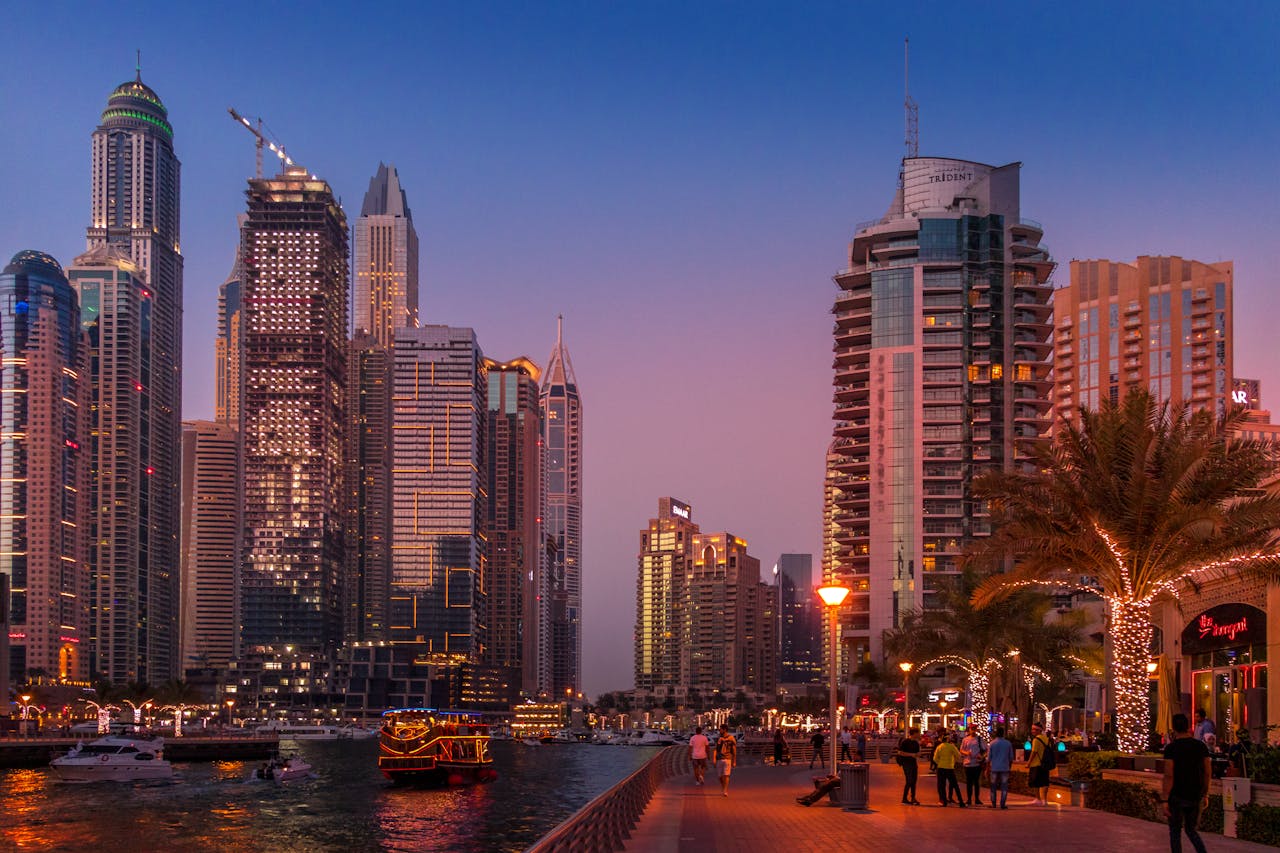Dubai’s real estate market is well known across the globe among investors because of its numerous attributes, including ultra-modern housing, a strong economy, and openness to foreign investment. Of course, any property market that one might consider should be carefully considered before jumping in. Here are seven essential things you should know before exploring the world of Dubai’s magnificent beachfront residences and opulent villas.
Contents
1. Market Trends and Your Investment Goals
Understanding the Market Cycle
Dubai’s real estate market is perceived as highly volatile because it has also exploded during the last couple of years, but frequent drops have occurred. To answer the question of where the market is, look into the recent market trends and consult with reputable real estate agents. Investors are not limited to one option, but they have the opportunity to choose between long- or short-term income sources. Objective identification will help you settle on the best home type and location.
Types of Properties
Dubai has a wide range of real estate options, including beachfront houses on Palm Jumeirah and opulent flats in the Burj Khalifa. Before investing in Dubai real estate, consider your spending limit, lifestyle choices, and rental possibilities when deciding.
2. Location, Location, Location
Prime vs. Up-and-Coming Areas
Dubai has many well-known, desirable areas, such as Dubai Marina and Downtown Dubai, with strong rental yields and prospects for capital growth. However, there is a premium cost associated with these regions. Although they may have lower rental yields, emerging neighborhoods may provide superior long-term growth prospects and affordability.
Infrastructure and Amenities
See past the glamor and dazzle! When buying property in Dubai, consider how close your selected property is to necessary facilities like hospitals, schools, and transit hubs. Renters will find a home more appealing and may even pay more if it is conveniently located near their needs.
3. Investment Options: Off-Plan vs. Ready Properties
Off-Plan Properties
These properties are still in the building stage and can be bought for less upfront, permitting capital growth after completion. However, there are dangers associated with it, such as construction delays or shifts in the market affecting your investment.
Ready Properties
These homes are finished and ready for immediate occupancy or rental. You can prevent delays in construction by physically inspecting the land. On the other hand, ready properties typically cost more than off-plan options.
4. Legal Considerations and Ownership Structures
Freehold vs. Leasehold
Most freehold neighborhoods in Dubai permit foreign investors to purchase a home outright. Ownership rights are granted by leasehold properties for a set amount of time, typically 99 years. Your understanding of the ownership structure will affect your rights and prospects for resale.
Due Diligence and Legal Support
Any real estate market requires careful research before investing. Examine the developer’s track record, confirm the ownership of the properties, and speak with a lawyer experienced in Dubai real estate law.
5. Transaction Costs and Ongoing Expenses
Hidden Costs
These added costs consist of registration costs, fees levied by the Dubai Land Department (DLD), maintenance service charges for shared areas, and potential interest in the event that a mortgage is involved.
Taxes and Regulations
Although there isn’t a property tax in Dubai, there are additional costs, like a 4% sales tax, when purchasing real estate. Stay updated on any regulatory developments that may impact your investment.
6. Rental Yields and Property Management
Rental Market Analysis
Find out the average rental yields for the location and kind of property you have in mind. This will assist you in discovering the possible yield on your investment. Consider variables such as changes in the rental market and vacancy rates.
Property Management Options
It might take a lot of time to manage a rental property, which is why a trustworthy property management business can handle maintenance concerns, tenant relations, and rent collection while guaranteeing steady rental revenue.
7. Exit Strategy and Long-Term Vision
Investment Horizon
Do you intend to own the property for a long time or maybe sell it in a few years? Your decision to buy will be influenced by having a well-defined exit strategy. Take into account factors such as prospective resale value and market forecasts, as well as your investment goals.
Dubai’s Future Growth
Dubai is well-positioned for future growth because of its strong expansion plans and emphasis on innovation. So, purchasing real estate in Dubai can be a long-term, well-diversified component of an investment portfolio.
You can take a well-informed and strategic approach to your Dubai real estate investing journey by carefully weighing these seven important variables. Remember that property investment in Dubai can be tricky. Therefore, before making any decisions, you should extensively research and consult an expert!










